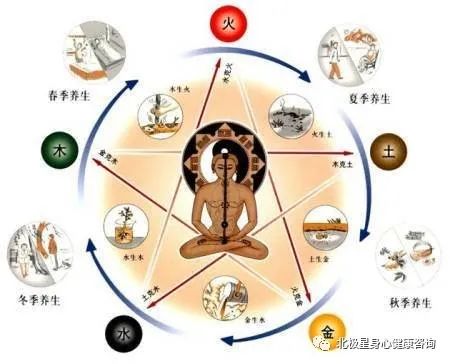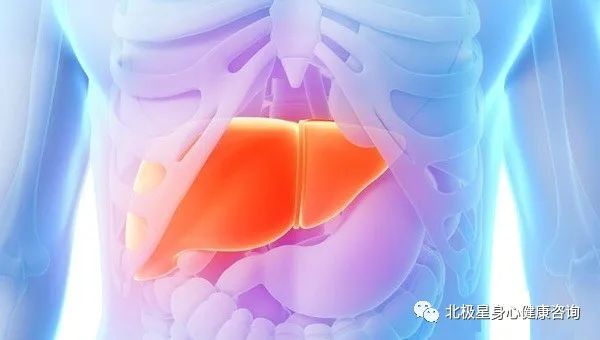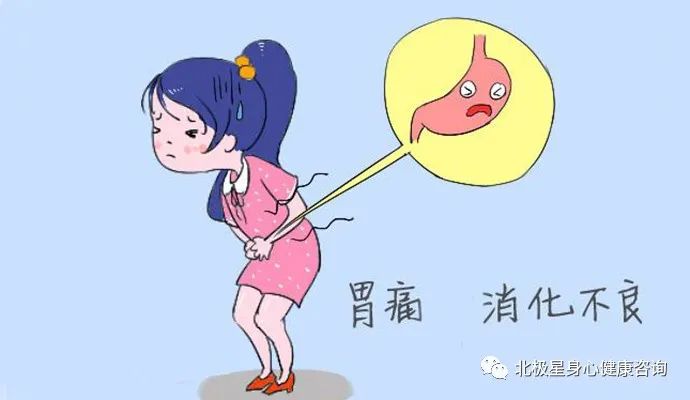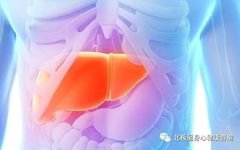
The Relationship Between the Five Zang Organs and Six Fu Organs
What knowledge does Traditional Chinese Medicine (TCM) offer for health preservation? TCM has a long history in our country, and Chinese herbal medicine is a pathway for health preservation.
In TCM, the term “Zang-Fu” is used to collectively refer to the internal organs of the human body.The Five Zang organs refer to: Heart (Xin), Liver (Gan), Spleen (Pi), Lung (Fei), and Kidney (Shen) (the Heart is covered by the Pericardium). The Six Fu organs refer to: Small Intestine (Xiao Chang), Large Intestine (Da Chang), Gallbladder (Dan), Stomach (Wei), Bladder (Pang Guang), and San Jiao (Triple Burner).
The Zang and Fu organs work together, with the Five Zang organs as the main commanders and the Six Fu organs as assistants, to complete various functions of the human body. This leads to the concept of the relationship between the exterior and interior: the Liver and Gallbladder are interrelated, the Heart and Small Intestine are interrelated, the Spleen and Stomach are interrelated, the Lung and Large Intestine are interrelated, and the Kidney and Bladder are interrelated.

1. Liver and Gallbladder
The Liver and Gallbladder are mutually interrelated. “The Liver stores blood”; the Liver has the function of storing and regulating blood, hence the saying “the Liver governs blood.” The smooth flow of Liver Qi has the effect of uplifting and dispersing, which can invigorate the entire body, making one energetic, calm, and cheerful.
(1) “The Liver opens to the eyes”; the Liver is the root of the eyes. When the Liver’s essence is sufficient, the eyes are bright, clear, and spirited. If Liver fire is excessive, the eyes may appear red; if the Liver is deficient, the eyes may become dry and vision unclear.(2) “The Liver governs the tendons, and its manifestation is in the nails”; when the Liver’s essence is sufficient, it nourishes the tendons, making them strong and flexible, and the nails appear full, smooth, transparent, and pink. If the Liver is deficient, the tendons may become stiff, movement sluggish, and the nails may appear dirty, concave, and lack color.(3) “Anger harms the Liver”; when Liver Qi flows smoothly, a person is energetic and can remain calm and friendly in interactions. If Liver Qi stagnates, it can lead to anger, fierce expressions, a flushed face, and unpleasant body odor.The Yin of the Liver includes blood and the lubricating fluids needed for the movement of tendons and muscles—Yin Jin. When Liver Yin is sufficient, the body feels relaxed, and the mind is confident, without anger or disharmony. Symptoms of Liver discomfort can be categorized into Yang excess and Yin deficiency, each with distinct characteristics:1. Those with Liver Yang excess are irritable and energetic; those with Liver Yin deficiency are anxious but fatigued.2. Liver Yang excess may present with red, dry eyes, corneal spots, or swollen, drooping eyelids; Liver Yin deficiency may present with sunken eye sockets, dry eyes, blurred vision, or conditions like retinal detachment and cataracts.3. Liver Yang excess may cause fullness under the ribs after meals or pain in the right rib; Liver Yin deficiency may cause subtle pain in the right rib.4. Those with Liver Yang excess may have restless legs; those with Liver Yin deficiency may experience weakness in the legs.
5. Those with Liver Yang excess may become anxious in stressful situations; those with Liver Yin deficiency may feel overwhelmed.
2. Heart and Small Intestine
In TCM, the Heart encompasses both the heart and the brain. For example, when we say “thinking in the heart,” it refers to the brain’s thinking, not the heart itself.
The Heart governs consciousness, mental awareness, and higher central nervous system activities, leading the functions of other organs. Those with sufficient Qi and abundant blood are joyful and radiant, while those with Heart Qi deficiency may experience palpitations, dull eyes, and lack of interest, leading to severe cases of anorexia.
(1) Sufficient Heart Qi results in a radiant complexion.
Those with sufficient Heart Qi have a complexion that is rosy and smooth; those with Heart Qi deficiency have a dull complexion, enlarged pores, and may sweat excessively, leading to severe cases of profuse sweating.
(2) Sufficient Heart Qi produces a clear and resonant voice.
Those with sufficient Heart Qi have a voice like a ringing bell, are expressive, and show their emotions; those with Heart Qi deficiency have a low voice, often sighing, speaking little, and may feel depressed.
Heart Qi deficiency can arise from various causes: excessive fatigue, emotional distress, or aging. Adjusting the Heart also involves distinguishing between Yin and Yang; insufficient Heart Yang can consume Yin and generate heat, while insufficient Heart Yin can lead to heat damaging Qi. The characteristics of Yang deficiency and Yin deficiency are as follows:
A. “The tongue is the sprout of the Heart”; a plump, pale tongue indicates Yang deficiency, while a thin, red tongue indicates Yin deficiency.
B. Ulcers on the tongue with a white coating indicate Yang deficiency, while a red tongue indicates Yin deficiency.
C. Frequent sighing and spontaneous sweating indicate Yang deficiency, while a flushed face and spontaneous sweating indicate Yin deficiency.
D. A feeling of tightness in the heart area and fearfulness indicates Yang deficiency, while a feeling of heat and irritability indicates Yin deficiency.3. Lung and Large Intestine
The Lung is located in the upper chest and is the pathway for Qi, with the throat as the gateway, opening to the nose, allowing for the exchange of gases. “The Lung is connected to the blood vessels”; the clear Qi inhaled by the Lung combines with the essence of food transformed by the Spleen to generate Yuan Qi, sustaining life. The Lung and Heart are both part of the upper jiao and depend on each other; the Lung governs Qi, while the Heart governs blood; without Qi, blood cannot survive, and without blood, Qi cannot thrive.
1. Lung Qi is vital for energy; sufficient Lung Qi means the blood is rich in oxygen, leading to vitality. Healthy young women often have smooth, fair skin, which is related to sufficient Lung Qi.
2. The Lung governs the skin and hair; when Lung Qi is sufficient, the skin is well-nourished, soft, smooth, and with fine pores. When Lung Qi is deficient, the skin’s resistance weakens, leading to symptoms such as subcutaneous rashes, skin lesions, facial redness, and acne.
3. Sufficient Lung Qi results in a refined nose; when Lung Qi is sufficient, the nose appears bright and delicate, while Lung Qi deficiency may lead to enlarged pores or a red nose, which can develop into rosacea.
4. Sufficient Lung Qi prevents obesity; the Lung regulates water pathways and directs fluids to the Bladder. The Lung’s regulation of body fluids requires cooperation with the Spleen and Kidney; if any link fails, it can lead to poor fluid metabolism, resulting in obesity or severe edema.
When Lung Qi is sufficient, the nose is free from inflammation and has a keen sense of smell. When Lung Qi is deficient, one may be prone to nasal and throat allergies, sometimes unable to distinguish between pleasant and unpleasant odors. “The Lung governs grief”; when Lung Qi is sufficient, a person often laughs, while Lung Qi deficiency may lead to excessive worry. The Lung can also be categorized into Yin and Yang deficiency, with different symptoms:
When Lung Yang is deficient, one may experience weak coughs, clear nasal discharge, and in severe cases, shortness of breath or difficulty breathing, with clear, thin phlegm, fatigue, low voice, cold intolerance, spontaneous sweating, and a pale tongue. When Lung Yin is deficient, one may experience dry cough with little phlegm, tidal fever, night sweats, flushed cheeks, hot palms and soles, dry throat, hoarseness, and a red, dry tongue with little coating.

4. Spleen and Stomach
“The Spleen and Stomach are the source of transformation and generation, the foundation of postnatal life”; the Spleen governs transportation and transformation, distributing water and essence throughout the body to meet various needs and maintain normal organ function. All food enters through the Spleen and is dispersed; the Spleen and Stomach are the source of blood and essence generation, thus the health of the body during the day is closely related to the Spleen.
1. Sufficient Spleen Qi leads to robust muscles; “the Spleen governs muscles”; when Spleen Qi is sufficient, the muscles are plump and vibrant, and the face appears lively and energetic. Some people may not be conventionally attractive but still have a charming appearance, which is referred to in folk sayings as having “lovely flesh on the face.”2. Sufficient Spleen Qi results in a non-bulky face; a healthy, rosy complexion in women is considered normal, while other types of bulkiness are often due to edema. The Spleen governs the transportation of dampness; if Spleen Qi is deficient, it can lead to edema, with kidney deficiency causing edema in the legs and Spleen deficiency causing edema in the face and body.There are two main causes of Spleen deficiency: one is diet; the other is overthinking. Excessive consumption of cold foods, overeating fruits, and binge eating can harm the Spleen, while excessive worry can also damage it.3. “The Spleen opens to the mouth, and its glory is in the lips”; when Spleen Qi is sufficient, the lips are plump and rosy, and the breath is free of odor. When consuming grains, one can taste their fragrance; those with weak Spleen Qi have pale, rough lips, and if cold congeals in the Spleen, the lips may appear purple or black, with foul breath and tasteless food.4. “The Spleen governs blood, ensuring smooth circulation within the vessels”; when Spleen Qi is deficient and unable to govern blood, blood may leak outside the vessels, leading to “blood not following the channels,” resulting in subcutaneous bleeding and bruising. In severe cases, sweat may appear red, and some women may experience prolonged menstrual bleeding. The Spleen and Stomach are interrelated; the Spleen is like a workshop, and both are indispensable and must cooperate, but their characteristics differ: the Spleen prefers dryness and dislikes dampness, while the Stomach prefers moisture and dislikes dryness. When Spleen Qi rises and the central Qi is sufficient, Stomach Qi descends, allowing for smooth digestion and absorption. The symptoms of normal Spleen and Stomach function are as follows:1. When Spleen Qi is deficient, the lips may appear pale, and in severe cases, bloodless; when Stomach fire rises, the lips may be dry and cracked.2. Prolonged Spleen Qi deficiency may lead to receding gums, while prolonged Stomach Qi deficiency may lead to receding lower gums.3. Weak Spleen Qi may cause loose stools, while Stomach fire may lead to dry, hard stools.4. When Spleen Qi is deficient, the limbs may feel cold, while Stomach fire may cause a feeling of heat.
5. Insufficient Stomach Yang may cause bloating and vomiting of clear saliva.
5. Kidney and Bladder
“The Kidney is the foundation of congenital life”; when Kidney Qi is abundant, one has sharp hearing and clear vision, abundant energy, a straight neck, and bright skin, which can delay aging by decades. When Kidney Qi is deficient, one may easily feel fear, and in severe cases, mental illness may occur.
1. “The Kidney governs water”; when Kidney Qi is sufficient, it can regulate body fluids and expel excess water promptly. When Kidney Qi declines in women, the body may retain water that should be expelled, leading to virtual obesity or edema below the waist. If the face also swells, it indicates a serious condition. However, replenishing Kidney Qi can reduce waist size without necessarily losing weight, as “the Kidney governs bones”; when Kidney Qi is sufficient, bone density increases, which may lead to weight gain.2. “The Kidney governs hair”; when Kidney Qi is sufficient, hair is thick and shiny; when Kidney Qi is deficient, hair may fall out and become dry. Therefore, the fundamental treatment for hair loss is to nourish the Kidney. Sufficient Kidney Qi leads to a straight neck and strong teeth, as the Kidney governs bones, and teeth are extensions of bones. When Kidney Qi is deficient, the neck may lack strength, leading to bone hyperplasia. Therefore, when middle-aged individuals experience bone hyperplasia or loose teeth, they should not rush into surgery but should first focus on nourishing the Kidney, which can fundamentally resolve the issue and preserve the teeth.3. “The Kidney receives Lung Qi, and the Lung governs the skin”; when Kidney Qi is sufficient, it can accept Lung Qi, allowing the Lung to nourish the skin. When Kidney Qi is deficient, it can obstruct the Lung’s descending function, leading to facial blemishes, and some may develop acne due to Kidney deficiency preventing the acceptance of Lung Qi.4. Sufficient Kidney Qi leads to harmonious marital life; “the Kidney opens to the two Yin below and to the ears above”; when Kidney Qi is sufficient, hearing is good. The Kidney is the mother of the Liver; when both the Liver and Kidney are sufficient, one has sharp hearing and clear vision. Kidney deficiency can lead to poor hearing, tinnitus, dizziness, or even deafness.When nourishing the Kidney, it is essential to determine whether it is Yang deficiency or Yin deficiency; Yang deficiency should be supplemented with Yang, while Yin deficiency should be nourished with Yin. If reversed, it will not only fail to nourish the Kidney but may also have adverse effects. The characteristics of Kidney Yang deficiency and Yin deficiency are as follows:Yang deficiency: fear of cold, cold hands or feet.Yin deficiency: fear of heat, hot palms and soles, and internal heat, known as “Five Hearts Heat.”1. A weak tongue that is plump and pale with a white coating indicates Yang deficiency; a thin, red tongue with little coating indicates Yin deficiency.2. Yin deficiency tends to be thin, while Yang deficiency tends to be overweight.3. Yang deficiency leads to fatigue, while Yin deficiency leads to restlessness and internal heat.4. Yang deficiency presents with a pale, dull complexion, while Yin deficiency presents with flushed cheeks and a reddish face.

